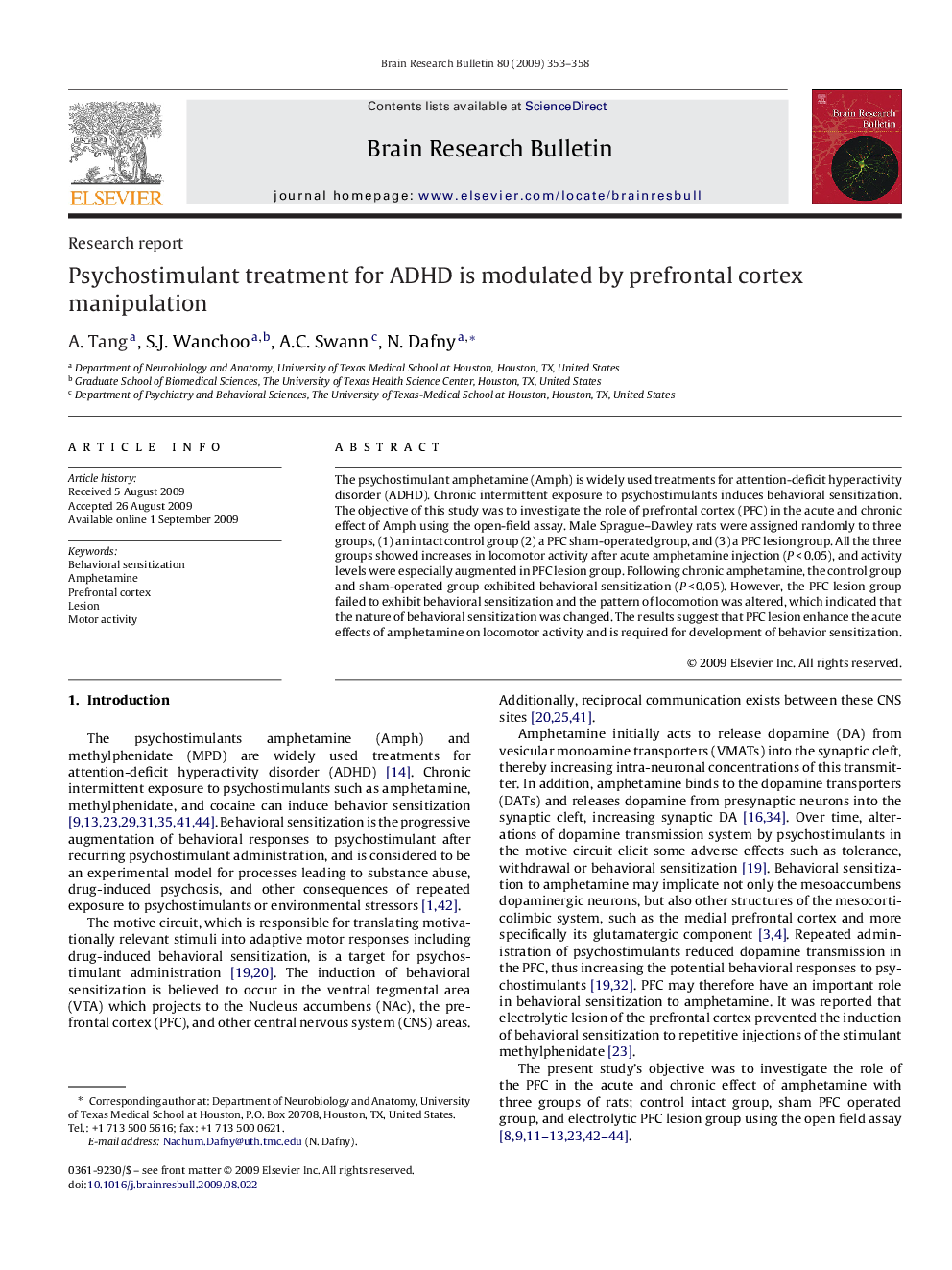| Article ID | Journal | Published Year | Pages | File Type |
|---|---|---|---|---|
| 4319186 | Brain Research Bulletin | 2009 | 6 Pages |
The psychostimulant amphetamine (Amph) is widely used treatments for attention-deficit hyperactivity disorder (ADHD). Chronic intermittent exposure to psychostimulants induces behavioral sensitization. The objective of this study was to investigate the role of prefrontal cortex (PFC) in the acute and chronic effect of Amph using the open-field assay. Male Sprague–Dawley rats were assigned randomly to three groups, (1) an intact control group (2) a PFC sham-operated group, and (3) a PFC lesion group. All the three groups showed increases in locomotor activity after acute amphetamine injection (P < 0.05), and activity levels were especially augmented in PFC lesion group. Following chronic amphetamine, the control group and sham-operated group exhibited behavioral sensitization (P < 0.05). However, the PFC lesion group failed to exhibit behavioral sensitization and the pattern of locomotion was altered, which indicated that the nature of behavioral sensitization was changed. The results suggest that PFC lesion enhance the acute effects of amphetamine on locomotor activity and is required for development of behavior sensitization.
